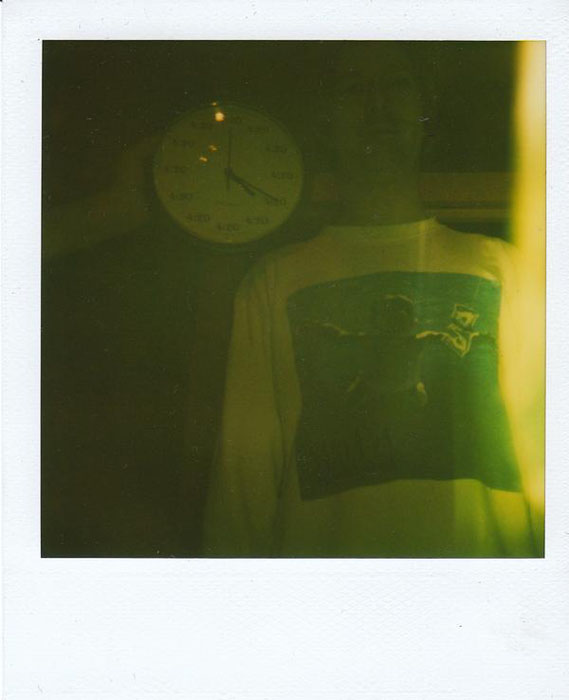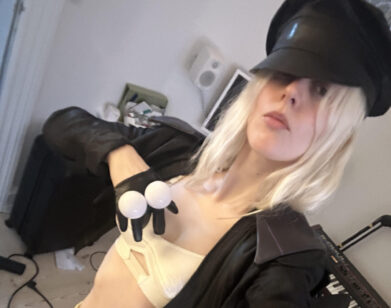Console Consort

I first met record producer and engineer Chris Coady one year ago at DNA Downtown, his Lower East Side studio, where he was preparing to make Islands’ 2009 record Vapours. Over the course of that session–which took place at mostly at Stratosphere Sound, James Iha’s palatial Chelsea studio, before wrapping up back at DNA–it became clear that I was observing the work of a seriously talented sound technician. Coady has an ear for the musical craft of production and the cunning technological adroitness of a hacker. As it turns out, he used to be just that nerdy kind of troublemaker, “back when everything was done over phone lines,” as he tells it. (PHOTO: CHRIS COADY AT DREAM HOUSE STUDIO IN 2009, COURTESY OF BEACH HOUSE AND CHRIS COADY)
That can’t have been too long ago, though; at 31, Coady’s already rounding the corner on his fiftieth record and wielding a discography guaranteed to namedrop at least one of your favorite bands–Blonde Redhead, Yeah Yeah Yeahs, TV on the Radio, …Trail of Dead, !!!, and Grizzly Bear, to name just a few. Indie-rock fans may not have heard the name Chris Coady, but they know his work well.
Most recently, he was behind the console recording Beach House’s hugely acclaimed new record, Teen Dream, which was released last week. Beach House’s music has been described as “dream pop,” and it’s hard to argue with that characterization. The lush instrumentation conjured from the guitar/synth duo’s third album wafts intoxicatingly along to the sound of Victoria Legrand’s husky vocals. At some point in each song on Teen Dream, there is the distinct sense of being told a special secret.
Coady considers vocal coaching one of his artistic strengths as a producer, and he eschewed any comparisons when describing Legrand’s singular voice. She’s been likened to Nico, but the mild hoarseness in Legrand’s seductive alto offsets an otherwise rich, penetrating tone and sends out the kind of duende that would have betrayed Nico’s chic flatness.
“She sounds like no one I’ve ever heard,” Coady tells me. “But women singers usually get compared to other [women singers] more quickly than male singers for some reason. It’s really not fair. From the standpoint of a producer, though, recording her vocals was pretty much effortless. She was trained as a singer from a young age, so she has a lot of dynamics, range and volume, which she seems to be able to control effortlessly–to essentially hold it down with all that music going. Nothing in the music can ever overpower her voice.”
Like Beach House, Coady hails from Baltimore, where he got his start recording punk bands in the 90s. In New York, he found work engineering and assisting at Quad Studios, a five-floor complex in Times Square where Wu Tang and Notorious B.I.G. recorded. (Tupac Shakur suffered five non-fatal gunshot wounds in Quad’s lobby during a 1994 robbery.) “It’s kind of a legendary spot for New York hip-hop,” Coady says. There, he “learned how to do things a little more professionally.”
Meanwhile, he was living with Dave Sitek and Tunde Adebimpe, who were then developing the band that would become TV on the Radio. Coady recalls: “I’d already been working with bands like !!! and [songwriter] Cass McCombs at Quad when Dave asked me to quit my job and become [TVOTR’s] full-time engineer.” So, in April of 2005, after three years at Quad, Coady left to build Williamsburg’s Stay Gold studio. Though the studio has since closed–priced out by the neighborhood’s gentrification–Coady’s recording career has only amplified in his new Lower East Side headquarters.






